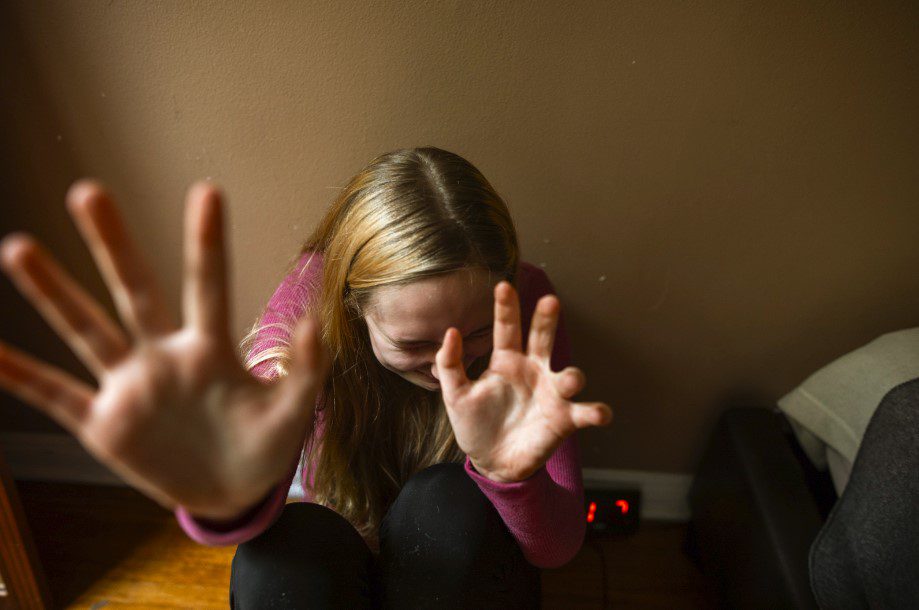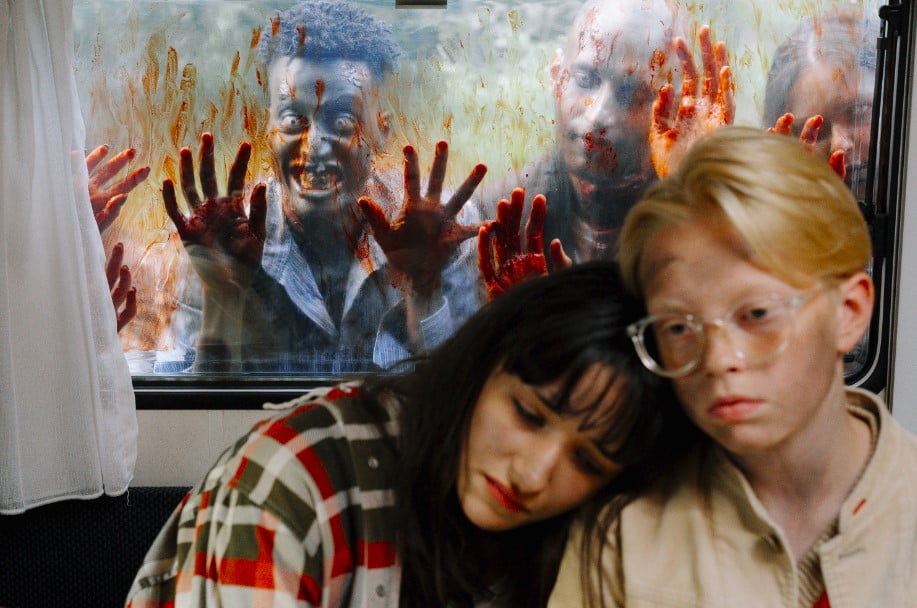Behind the innocence and playfulness of children at night, lies a hidden fear that creeps into the minds of many of them – fear of sleep. Sometimes this can go on without their parents knowing.
The fear is like a shadowy figure lurking in the darkness, and makes them dread the very act that should bring rest and peace. This fear of sleep is a perplexing phenomenon that can turn bedtime into a haunting experience.
To counter these fears, children often ask for extra bedtime stories, insist on having the light turned on, or request their parents stay with them until they fall asleep.
Sleep is supposed to be an essential element in children’s well-being, to promote growth, development, and overall health. Inadequate or disrupted sleep can have negative effects on various aspects of their development. Poor sleep must be investigated and dealt with appropriately.
In this article, we will explore the causes of fear of sleep in children and provide examples to better understand this common issue. We also suggest strategies to have the disorder under control.
Exactly What is the Fear of Sleep in Children?

Fear of sleep, also known as somniphobia, refers to a specific anxiety or apprehension that individuals, particularly children, experience in relation to falling asleep. It is characterized by feelings of unease, fear, or distress surrounding the idea of entering the sleep state.
The fear of sleep can manifest in various ways. It may result in difficulty falling asleep, resistance to going to bed, and frequent nighttime awakenings.
Children with fear of sleep may also experience nightmares or night terrors, or express anxieties about being alone in the dark. This fear can stem from various causes, such as nightmares, separation anxiety, fear of the dark, traumatic experiences, overactive imagination, or underlying sleep disorders.
The fear of sleep can have significant impacts on a child’s overall well-being. It can disrupt their sleep patterns, leading to fatigue, difficulty concentrating, and mood swings during the day. Chronic sleep disturbances can also affect their physical and cognitive development, academic performance, and emotional resilience.
Understanding and addressing the causes of this fear can help them overcome their anxieties and establish a more positive and restful relationship with sleep.
Common Causes of Fear of Sleep in Children

1. Nightmares and Night Terrors
Nightmares are vivid, disturbing dreams that can evoke fear, anxiety, and unease in children. They often occur during the rapid eye movement (REM) sleep stage and can be triggered by various factors, such as scary/violent movies, books, or real-life experiences. Night terrors, on the other hand, are episodes of intense fear, screaming, and thrashing during sleep, usually during non-REM sleep.
2. Separation Anxiety
Separation anxiety is a common developmental stage in young children. It can manifest at bedtime when they feel anxious about being away from their parents or caregivers. The fear of separation can make falling asleep or sleeping alone a daunting experience for children.
3. Fear of the Dark
Many children experience fear or anxiety when it’s time to sleep in a dark room. The lack of light and the unknown elements of the dark can trigger their imagination, leading to fears of monsters, ghosts, or other imaginary creatures lurking in the shadows. On the flip-side, this does not, however, mean that you should turn the lights on, in children’s bedrooms. Darkness at night is an essential ingredient in ensuring healthy development for them.
4. Traumatic Experiences
Children who have experienced traumatic events, such as accidents, natural disasters, or witnessing violence, may develop a fear of sleep. Trauma refers to an overwhelming event or series of events that surpass a child’s ability to cope and can have lasting effects on their emotional and psychological well-being. The trauma and associated memories can resurface during bedtime, to cause anxiety and fear.
5. Overactive Imagination
While having a vivid imagination is generally a positive trait, it can sometimes lead to difficulties in falling asleep and maintaining a restful sleep. Their imagination may create scary scenarios or monsters, making it difficult for them to feel safe and secure. These fears and anxieties may be triggered by stories, movies, or their own imagination.
6. Sleep Disorders
Certain sleep disorders, such as sleep apnea or insomnia, can contribute to the fear of sleep in children. Sleep apnea, characterized by breathing interruptions during sleep, can lead to feelings of unease and anxiety. Insomnia, which involves difficulty falling asleep or staying asleep, can heighten a child’s fear and anticipation of bedtime.
Strategies to Help Children Overcome Fear of Sleep

Understanding the causes is the first step in helping children overcome their fear of sleep.
Here are some strategies to help you get started:
1. Establish a Consistent Bedtime Routine
Creating a consistent bedtime routine helps children feel secure and signals that it’s time to wind down and prepare for sleep. This routine can include activities such as a warm bath, reading a bedtime story, or practicing relaxation techniques.
2. Create a Safe and Comfortable Sleeping Environment
Ensure children’s bedroom is comfortable, cozy, and conducive to sleep. Use nightlights or low-level lighting to alleviate fears of the dark. You can turn the lights completely off when they are deep asleep. Comforting items like a favorite stuffed animal or blanket can provide a sense of security.
3. Encourage Open Communication
Encourage children to express their fears and concerns about sleep openly. Create a safe space for them to share their thoughts and emotions without judgment. Listening attentively and validating their feelings can help alleviate anxiety.
4. Provide Reassurance and Support
Reassure children that they are safe and loved. Offer words of comfort and provide physical reassurance, such as cuddling or holding their hand, until they feel secure enough to fall asleep.
5. Seek Professional Help if Needed
If the fear of sleep persists or significantly impacts a child’s daily functioning, it may be beneficial to seek professional help. Just as well, when helping children with sleep apnea or insomnia, it’s important to consult with a healthcare professional for an accurate diagnosis and tailored treatment plan.
A pediatrician, psychologist, or sleep specialist can provide guidance, evaluate any underlying issues, and suggest appropriate interventions.
The Last Word

By understanding the causes of poor sleep, and implementing strategies to curb them, parents and caregivers can help children overcome their fear of sleep and promote restful nights.
Providing a safe and secure sleep environment, addressing any fears or anxieties they may have, and engaging in positive and imaginative activities during the day can also help channel their imagination in a more positive way and promote better sleep.
Remember, it’s essential to involve healthcare professionals in the management of sleep apnea or insomnia. They can provide a comprehensive evaluation, identify any underlying causes, and recommend appropriate treatments or therapies tailored to the child’s specific needs.
FAQs
Qn: Can fear of sleep in children be outgrown?
A: Yes, in many cases, children outgrow their fear of sleep as they develop coping mechanisms and become more secure in their environment.
Qn: How long does it take for a child to overcome the fear of sleep?
A: The time it takes for a child to overcome the fear of sleep can vary. It depends on the underlying causes, the child’s individual resilience, and the support provided by parents and caregivers. It can range from a few weeks to several months.
Qn: Is it normal for children to have nightmares frequently?
A: Occasional nightmares are normal for children. However, if nightmares become frequent and significantly impact their sleep and daily functioning, it may be beneficial to seek professional guidance.
Qn: Should I wake up my child during a nightmare?
A: It’s generally recommended to comfort and soothe your child without fully waking them during a nightmare. Reassuring them and helping them feel safe can aid in their return to restful sleep.
Qn: When should I seek professional help for my child’s fear of sleep?
A: If your child’s fear of sleep persists, intensifies, or significantly affects their daily life, it may be advisable to consult a healthcare professional. They can assess the situation, identify any underlying issues, and provide appropriate guidance or interventions.





Leave a Reply